Gathered to celebrate Easter and the original founding of the hacienda (rancho). Don Reynaldo (a charismatic Gerardo Trejoluna) emotionally relates, yet again, the tale of how his grandfather managed to shoot a puma when he first came to this land and planted an orange tree to commemorate the very spot.
The film opens on a hunt, where, struggling with 40°C heat, Don Reynaldo, with blurred vision, is unable to make any of his bullets count and is upstaged by Rosa, (a superb Paloma Petra) the humble maid, who, being an amazing shot, bags a stag for her boss. He is then lauded as a great hunter; an accolade he well knows he does not deserve. It is not lost on the audience that the walls of the ranch house are festooned with large stuffed stag and boar heads.
Despite appearances, the patriarchal Don Reynaldo is not as much in control as he likes to think. Water is a serious issue in these dry, sparse lands and most of the family, who live largely in Monterrey, in their air-conditioned homes, consider the farm no more than a weekend retreat. Vague threats to Don Rey’s security surface as he recounts how he has been threatened with having his balls cut off, if he does not pay a substantial amount of money to thieves in a prison. His riposte is that they had better “bring a goddamn huge machete”. But the threats still remain, dangling in the air. There is even family pressure on Don Rey to sell, which threatens his very raison d’être.
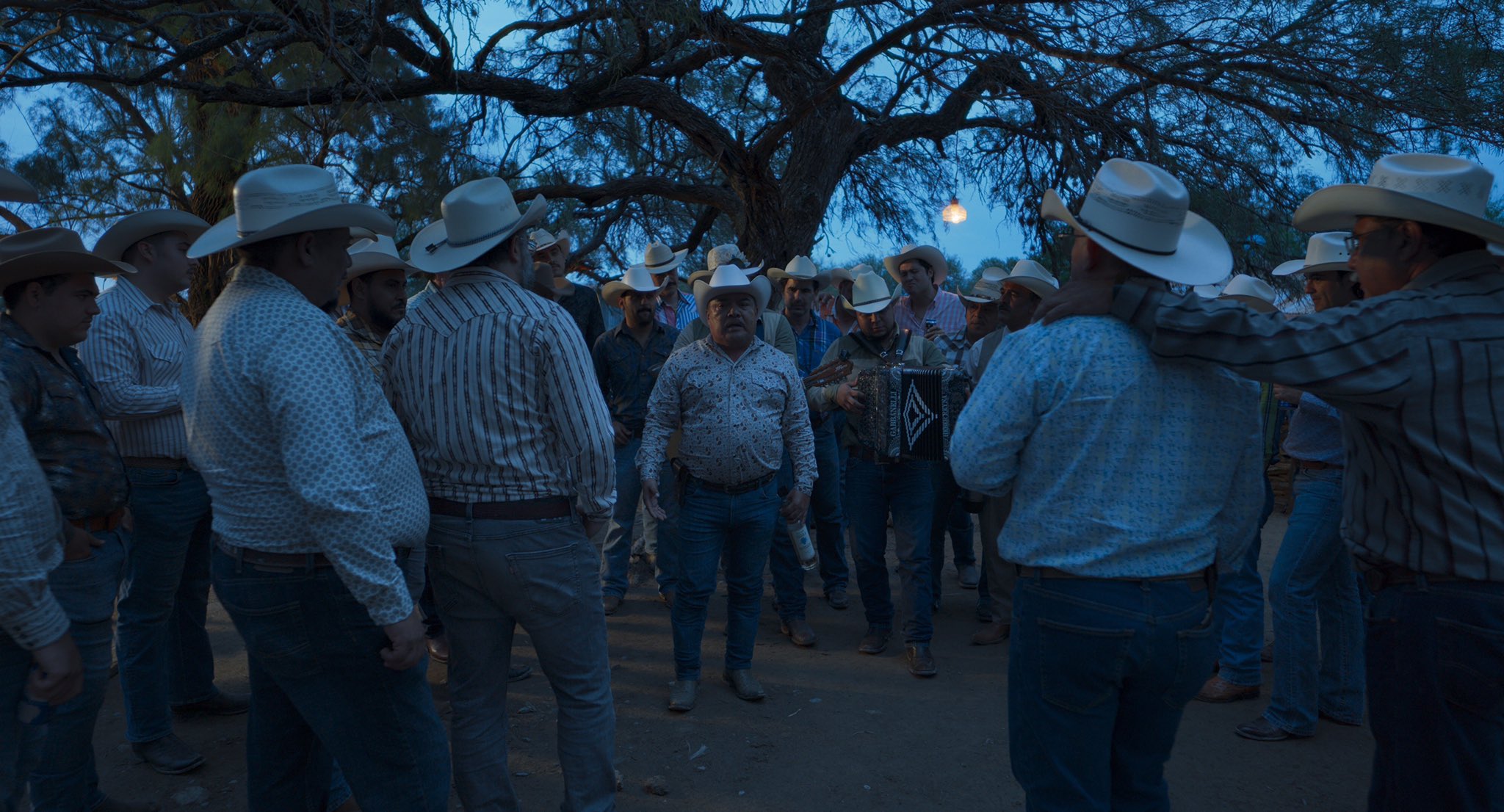
Celebrations at the farm
This is a dysfunctional family at odds. Everyone is concerned with their own personal issues, Reynaldo’s wife Sofía (Dolores Heredia) is busy hiding Easter eggs. Nearby, a cow staggers and dies, while the bouncy castle for the children, arranged by the son (and heir) Elías’ (Francisco Barreiro) rises up high, only to be damaged by the children and deflated again. Meanwhile, her brother-in-law, Arnulfo is determined to return to Monterrey with his family, in case they also suffer the fate of the ‘Ramos family’. What fate, we do not know, but the accumulation of images and the build-up of tension leads us to expect the worst.
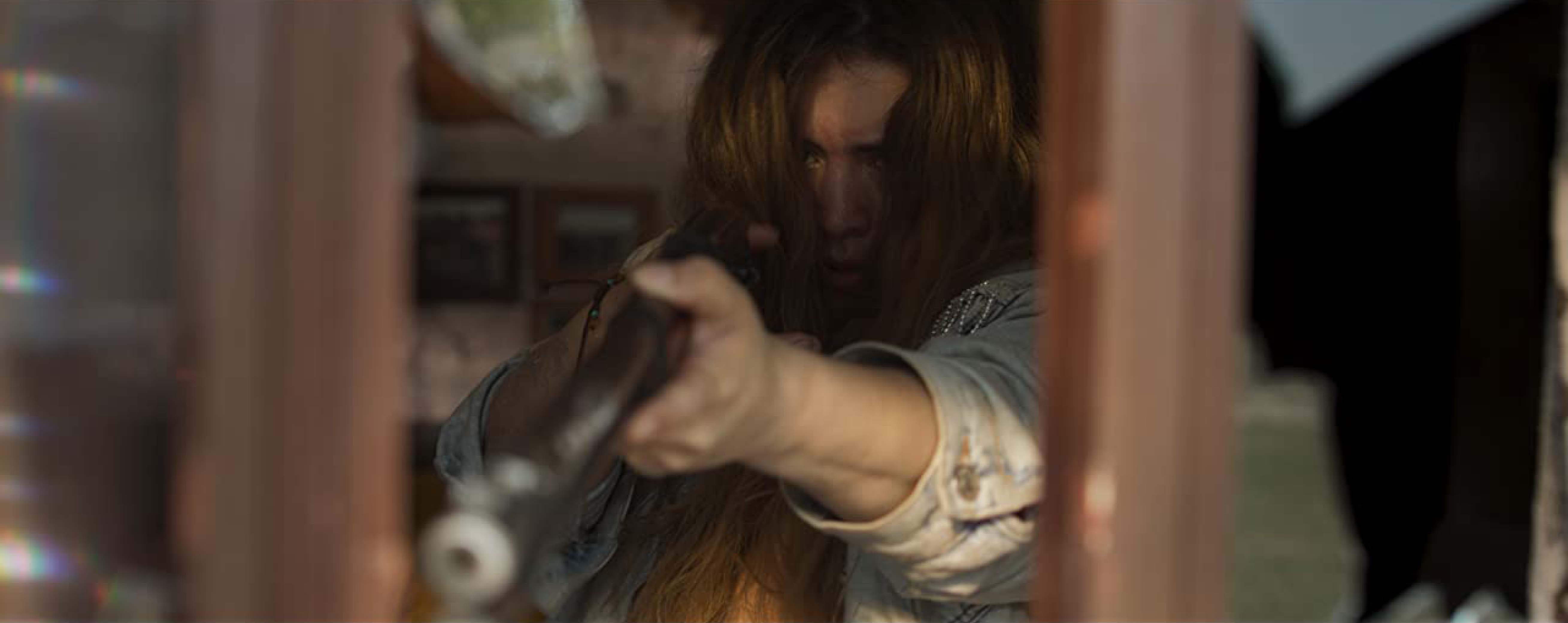
Paloma Petra as the indomitable Rosa
Gradually the evil that is throbbing to life in the dangerous undergrowth, explodes on the scene in the form of bandits who demand their protection money. Don Reynaldo is determined to defend his family and his land, but can he succeed against all odds? The symbols gradually intensify. As they prepare for the celebrations, a goat is slaughtered and we see a terrified pig awaiting its turn, rifles are mislaid and the brothers argue over who owns their father’s ‘Winchester’.
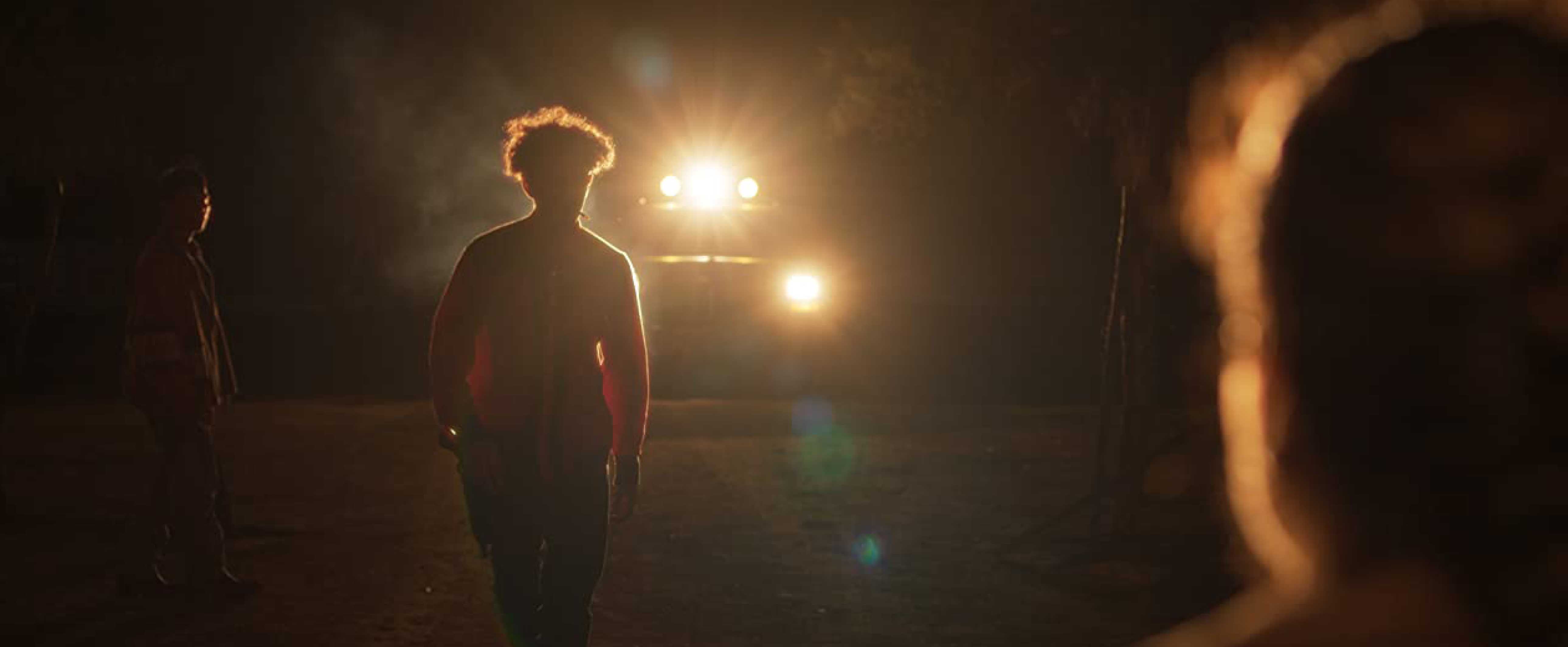
Raúl Briones as Ricardo Guzmán a 'pillo'
‘Northern skies over an Empty Space’ is a fiction feature, loosely based on the story of Mexican rancher and businessman and sometime hunter, Alejo Garza Támez. He gained fame as a courageous hero for making a stand against the Los Zetas cartel when he tried to stop their attempt to seize his ranch in Tamaulipas, near the city of Victoria. He succumbed to their violence, but became famous as a cultural icon, for “fighting with dignity, honour and courage”. Men who fight against all odds are seen as heroes in Mexico, like Pancho Villa, for, as director Márquez Abella points out: “It’s in our DNA”
In this fictionalized version, Sofia and Don Reynaldo express genuine love for one another but the real core relationship is the bond between Reynaldo and the maid Rosa, the only one who is close to the land, and who appreciates the real situation, as opposed to her boss Don Reynaldo. Rosa is a genuine case of ‘keep calm and carry on’. As with the hunt, Rosa invites us to question the basis for the accolades that Don Reynaldo receives, the same for his heroism. The relationship serves to introduce a nuance into how we attach heroism and courage to a man, rather than to feminine strength and resilience, as expressed by Rosa.
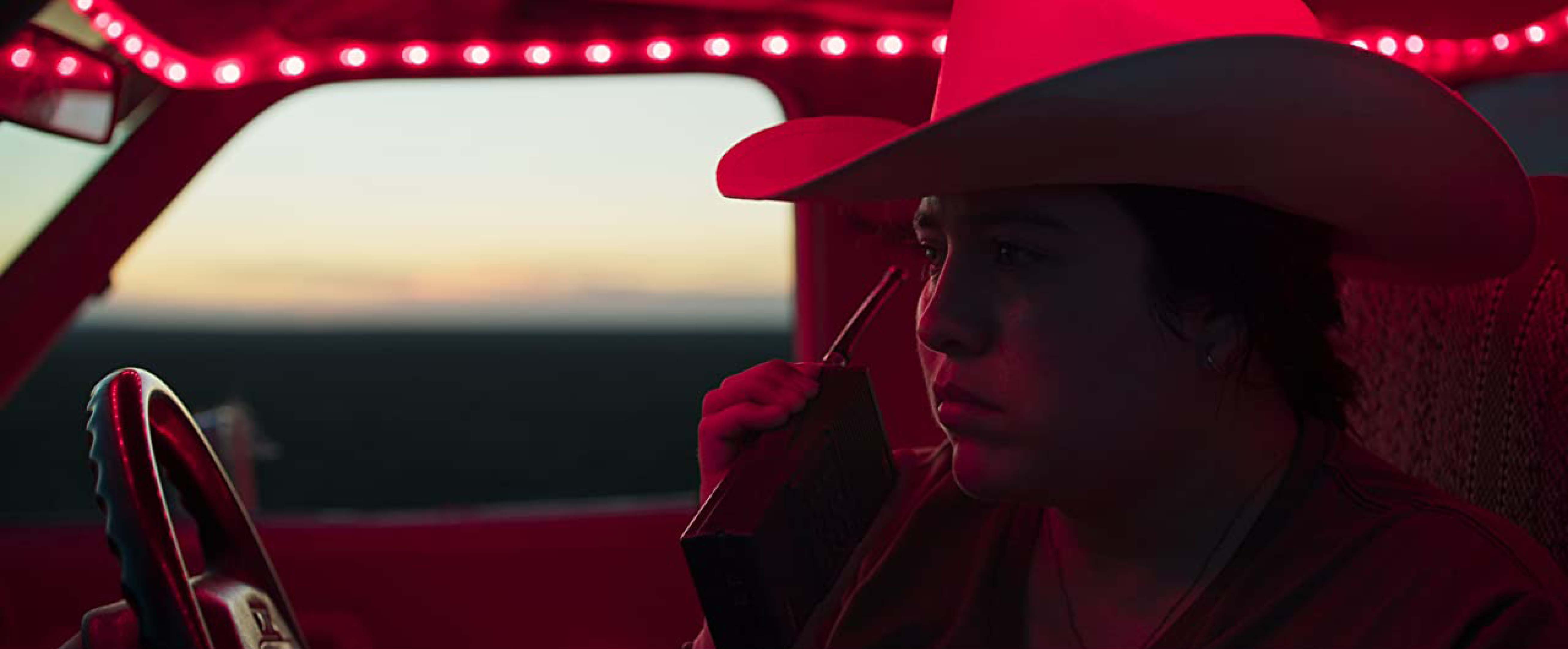
Paloma Petra as Rosa
The audience is challenged to ask questions of race, class, patriarchy, misogyny and underneath it all, the all-important point of who really owns the land, or should we say, who has the right to own it? Is it he who came and purchased a chunk while being an absent landlord most of the time, remaining unaware of what is really going on, or the First Nation’s people, the Rosas of this world? Or maybe it is those very creatures that live there, in the undergrowth, and were probably there long before people arrived?
Don Reynaldo defends his ranch, but is it his to defend, or is he defending his position of power by ‘owning’ it? Does he really belong in this land, or is he badly out-of-place? Márquez Abella says: ‘The land was here before we came and it will be here after we are gone’.
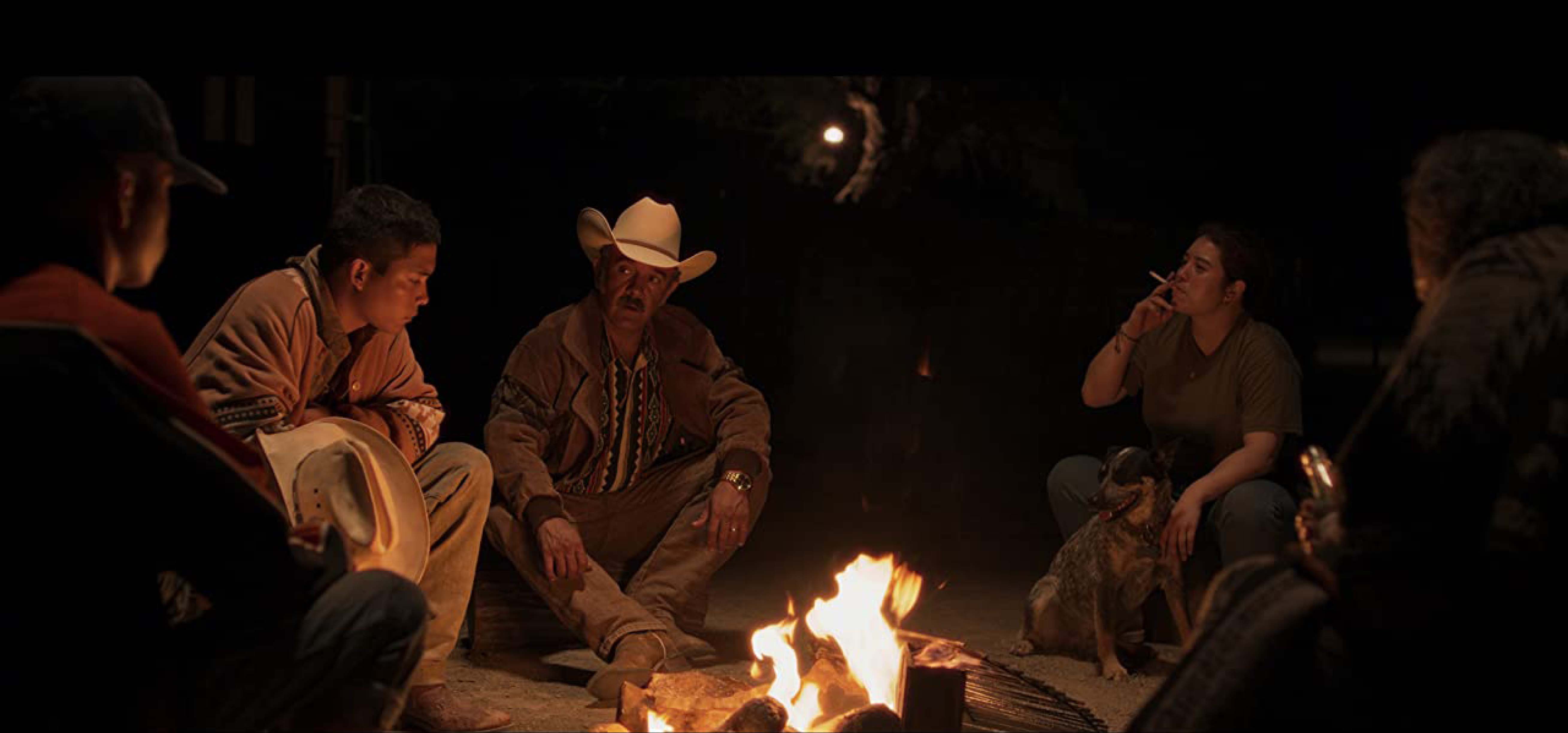
Gerardo Trejoluna as Don Reynlado ( centre) with Paloma Petra as Rosa ( with dog) discussing the dangers
Latin American ‘westerns’ are not an entirely new feature on the filmic landscape. Among the first to make an impact were Brazilian productions like ‘O CANGAÇEIRO’ (1953) by Lima Barreto, a film about a famous bandit, Lampião of the sertão (or drought plagued badlands of the north-east of Brazil) and ‘BLACK GOD, WHITE DEVIL’ (1964) by Glauber Rocha. They touched on poverty, class, the plight of villagers faced by bandits, as well as from the point of view of the bandits.
More recently, we have the ‘western’ BACURAU (2019) by Kleber Mendonça Filho and Juliano Dornelles, and ‘BIRDS OF PASSAGE’, by Ciro Guerra and Cristina Gallego. In some of these more recent productions, it is not always the villagers who are in danger, but also the landowners, who are seen as suitable prey for extortion. In ‘Northern Skies over an Empty Space’, Don Reynaldo is picked on for precisely that reason. He is not an overly wealthy landowner, but regardless, he is still seen to have more than the rest. In this tale of courage, honour and betrayal, all the ingredients are there for a ‘western’
Where are the Magnificent Seven when you need them?
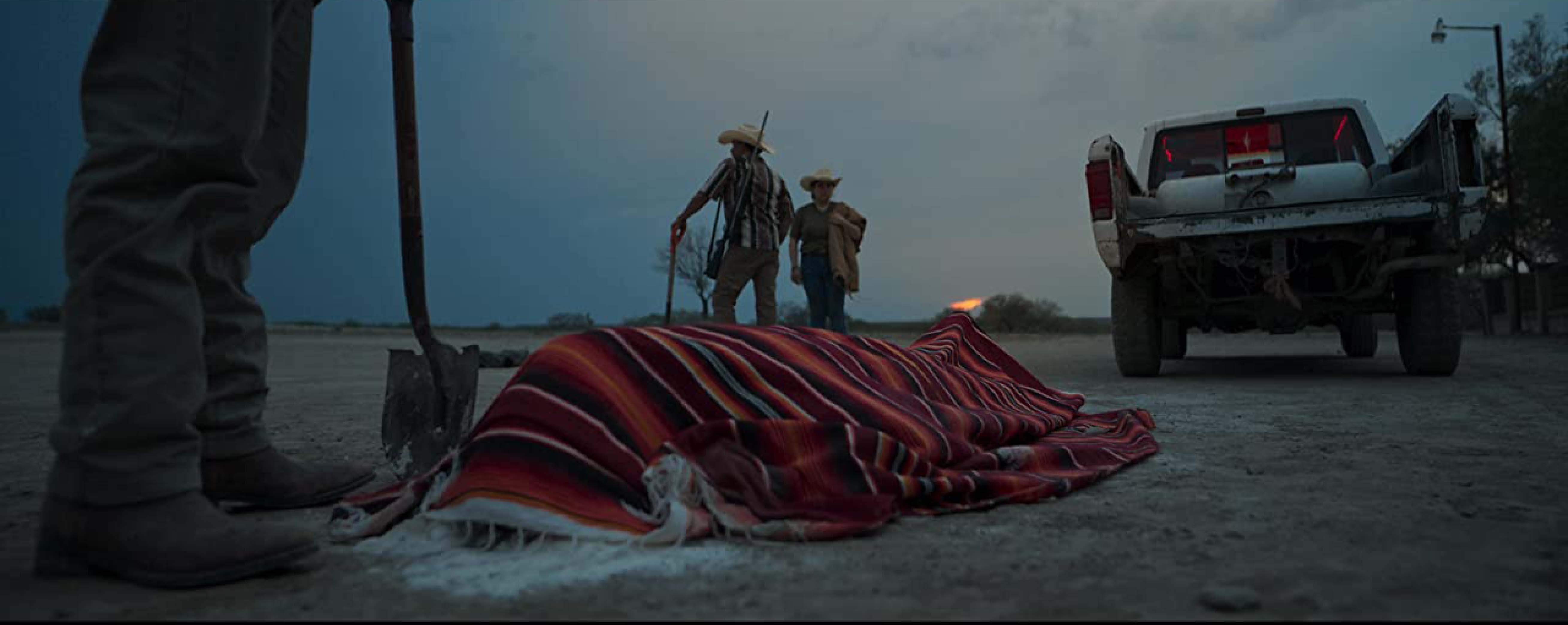
Northern Skies over and Empty Space
In a comprehensive interview in Berlin, Márquez Abella remarked that there are many layers to violence. In ‘Northern Skies’ the violence emerges from the start, simply because some are unable to accept people for who they are:
“There is a lot of talk of big violence by criminal gangs, but we don’t talk about the other violence that is in how we educate our children, how to we get food on to our table. There is violence there as well. The animals [are used] to make the audience reflect on that, a Pavlovian effect, when you see the frog, you know something is about to happen… Guzmán is the final expression – the one that makes the headlines and the news- the one we pick out and condemn. We are unable to see the [violence] that is around us. I wanted it to be expressed via the western genre, that made masculinity what it is today… it was built up through these films, during the 20th century, and I wanted to play with the genre and point these [things] out.”
These new ‘westerns’ are just as powerful as the early American versions, from ‘The Man who shot Liberty Vallance’ to ‘High Noon’, to ‘Unforgiven’. Invariably, Márquez Abella makes use of some ‘quotes’, but equally, there is a huge difference in the tactile, visual play, the intimacy of the camerawork and the magic realism in the use of symbols and references, that make it entirely Latin, and reveal that a new interesting form has been devised.

Alejandra Márquez Abella director.
‘NORTHERN SKIES OVER AN EMPTY SPACE’ (2022) is being screened in the Panorama Competition at the 72nd Edition of the Berlin Film Festival 2022.
Director:Alejandra Márquez Abella / Writers Alejandra Márquez Abella and Gabriel Nuncio / Production Alejandra Márquez Abella, Gabriel Nuncio, and Adán Pérez / DOP Claudia Beverril Bulos/ Editor Miguel Schverdfinger / Music Tomás Barreiro.
Cast: La familia: Gerardo Trejoluna, Dolores Heredia/ Mayra Hermosillo/ Francisco Barreiro/ Mariana Villegas/ Fernando Bonilla/ Marco García.
Rosa Paloma Petra
Los Pillos: the bad guys: Raúl Briones and Mauro ‘Bebo’ Cantú















